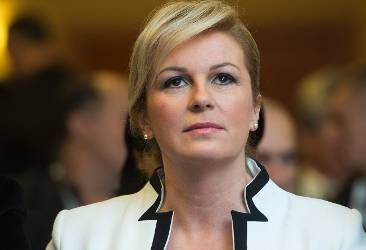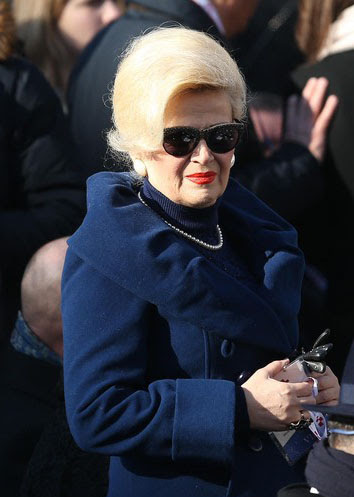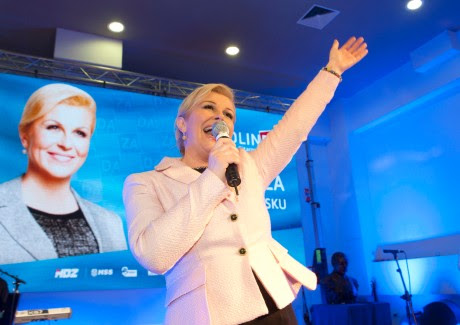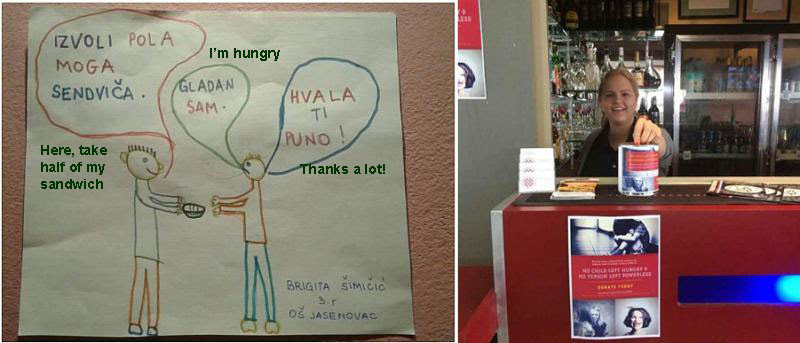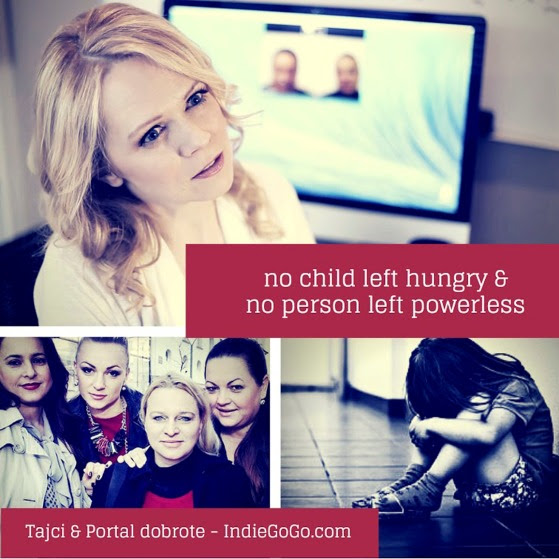Those
who are brave enough to expose corruption, fraud and similar criminal
deeds should enjoy a privileged status in any society especially the one
where corruption and fraud are seen as major stumbling blocks of
economic prosperity and opportunity for individuals to progress in life
on their merit and positive contribution to society. In Croatia,
whistleblowers have exposed more crimes of corruption, fraud and
breaches of laws and regulations oiled by bribery than the police or any
government run institution in the fight against corruption/crime but
often allegations of corruption have gathered dust in various drawers,
unattended. In Croatia, whistleblowers still do
not enjoy the protection they deserve and most are ostracised as some
kind of “social lepers”, lose their jobs and their families suffer. So it is no wonder that like in many countries of the world whistleblowers in Croatia have been organising themselves into associations, clubs and the like, particularly in the larger cities. Effective
whistleblower programs can have a real impact on the quality of
corporate governance but there is no doubt that there is a plethora of
cases where those who have had the courage to come forward, have
suffered adversely because of direct retaliation or lack of action by
government and/or regulators.
During her presidential election campaign Kolinda Grabar-Kitarovic had announced that she would, if elected, form the Whistleblowers office/unit attached to the Office of the President.
Into the second month of her presidency her office has mid-March 2015
announced that the President will soon, within weeks, establish a
Whistleblowers unit attached to her office.
And
while organising such an office President Kolinda Grabar-Kitarovic has,
according to news reports, on 24 March 2015 named Vesna Balenovic as
her adviser for whistleblowers.
Vesna Balenovic is a well-known whistleblower, and fighter for whistleblower rights in Croatia who had suffered terrible ordeals after having exposed corruption in INA, Croatia’s
leading oil company some fifteen years ago (the same company in which
the former Prime Minister Ivo Sanader had delved corruptly and is
currently serving a prison sentence for the corruption). Protection laws and regulations for whistleblowers exist in many countries but Croatia
lags far behind. The US Whistleblower protection laws consist of number
of Federal and State rules and regulations. They have proved to be
effective in most cases in providing legal protection for employees
(from both public and private sectors) who call attention to violations,
help with enforcement proceedings etc.
The United States Securities and Exchange Commission (SEC) Office of the Whistleblower has
been formed and appointed to reward those whistleblowers that report
violations in relation to breaches of federal securities laws; a similar
‘bounty’ program has been introduced by Internal Revenue service (US
taxation office) to reward reporters of tax frauds. This has been done
in order to encourage people (employees) to submit their tips – to blow
the whistle on violations and violators.
The UK is fortunate to have The Public Interest Disclosure Act, a single, comprehensive Whistleblower protection law that provides protection to both public and private sector whistleblowers. It was introduced in 1998 and amended in 2013. This Act has its origins in the numerous financial scandals that may have been avoided if employees had been provided an opportunity to report wrongdoing.
The UK is fortunate to have The Public Interest Disclosure Act, a single, comprehensive Whistleblower protection law that provides protection to both public and private sector whistleblowers. It was introduced in 1998 and amended in 2013. This Act has its origins in the numerous financial scandals that may have been avoided if employees had been provided an opportunity to report wrongdoing.
Employees in the European Union enjoy some whistleblowing protection as part of the ruling made by The European Court of Human Rights in 2011, but only a handful of European countries have actually introduced laws to protect whistleblowers.
There
is a research based consensus that there is a definite link between the
number of whistleblowing reports and the existence of comprehensive and
effective whistleblower protections laws in a country. Even without a
comprehensive national piece of whistleblower legislation in place,
implementing internal whistleblower programs within companies brings
about whistleblower protection and minimise damage to the life of the
whistleblower while it increases the common good for all employees and
the company as a whole.
Whistleblowers are not protected in Croatia
and there is an absolute need for processes that will change the
perception towards whistleblowers or those brave enough to point to
violations at work wherever they occur but always signify likely
practices of corruption, fraud and the like. It’s important to change
the perception at levels of society so that whistleblowers are not seen
as snitches but rather courageous and respected persons and, equally,
they need strong and multifaceted protection from retaliation and
revenge. The latter can best be achieved through legislation that
includes compulsory practices for employers to include whistleblower
protection measures within their own local working environment. That is,
in Croatia, a safe reporting channel or process
in which the whistleblower is protected from the potentially corrupt
surrounds as well as from the media while and until investigations into
the alleged violations are completed must be secured.
It’s
a proven fact around the world that successful reports of violations
have positive effects and outcomes in that they lead to new reports of
violations and raise significantly the level of applied accountability.
Hence, it’s not difficult to fathom that a government system open to
fighting and reducing corruption also has a strong ally in the
“whistleblower”.Besides
protecting the whistleblower, legislation and regulations addressing
whistleblower protections can and do also serve as agents of perception
change and are strong positively motivating forces that tell the
citizens that the government expects from them to be conscientious,
responsible and vigilant part of the society. On a state level, the proposed bill on whistleblower protection was drafted in Croatia
in late 2013 and was to go through the parliament procedure within a
year. As far as my research into the matter shows nothing has occurred
on this front so far. Although the ex-president of Croatia
Ivo Josipovic is reported as having been one of the major initiators to
have whistleblower protection regulated by legislation he did nothing
apart from the lip service for the cause, which leads one to think there
really was no decisive will to see it through. Thankfully, Croatia
has a new president in Kolinda Grabar-Kitarovic who is not about to
wait around for the incompetent government in the parliament to see some
serious advancement on the issue of whistleblower protection and/or
giving the cause determined support. Ina Vukic, Prof. (Zgb); B.A., M.A.Ps. (Syd)

